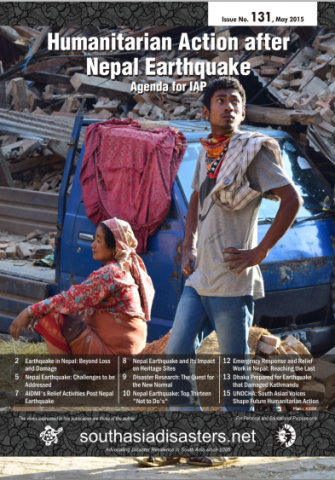Disaster Risk Reduction: A Front Line Defense against Climate Change and Displacement

“Disaster Risk Reduction (DRR) is a vital defense against climate change and displacement, particularly in the current context of increasing numbers of disaster-affected persons. In the last two decades, for example, an estimated 200 million people have been affected every year by natural disasters. A significant portion of the disaster-affected community is also disaster-displaced, making them even more vulnerable to human rights violations. The Operational Guidelines on Human Rights and Natural Disasters, developed by the RSG for Human Rights of Internally Displaced Persons (IDPs), provides recommendations to humanitarian organizations on how to ensure that the human rights of those affected by natural disasters are upheld. Yet it is equally important to examine how the risk of natural disasters can be reduced and we need to think about practical steps which can be taken to mitigate the effects of disasters.
The number of natural disasters is increasing and although the international community has been working on DRR for many years, there is much to be done in terms of implementing effective policies. We hope the discussion today will both raise awareness and encourage organizations represented here to begin or to renew their efforts to reduce the human impact of natural disasters.”
Click here for the full discussion. The report includes insights from:
– Peter Walker, Director, Feinstein International Center at Tufts University
– Elina Palm, Liaison Officer, UN International Strategy for Disaster Reduction (ISDR)
– Walter Ricardo Cotte, Director General Socorro Nacional Sociedad de la Cruz Roja Colombiana (Colombia Red Cross)
Link to full discussion
http://www.brookings.edu/research/reports/2007/10/10-disaster-risk-reduction
